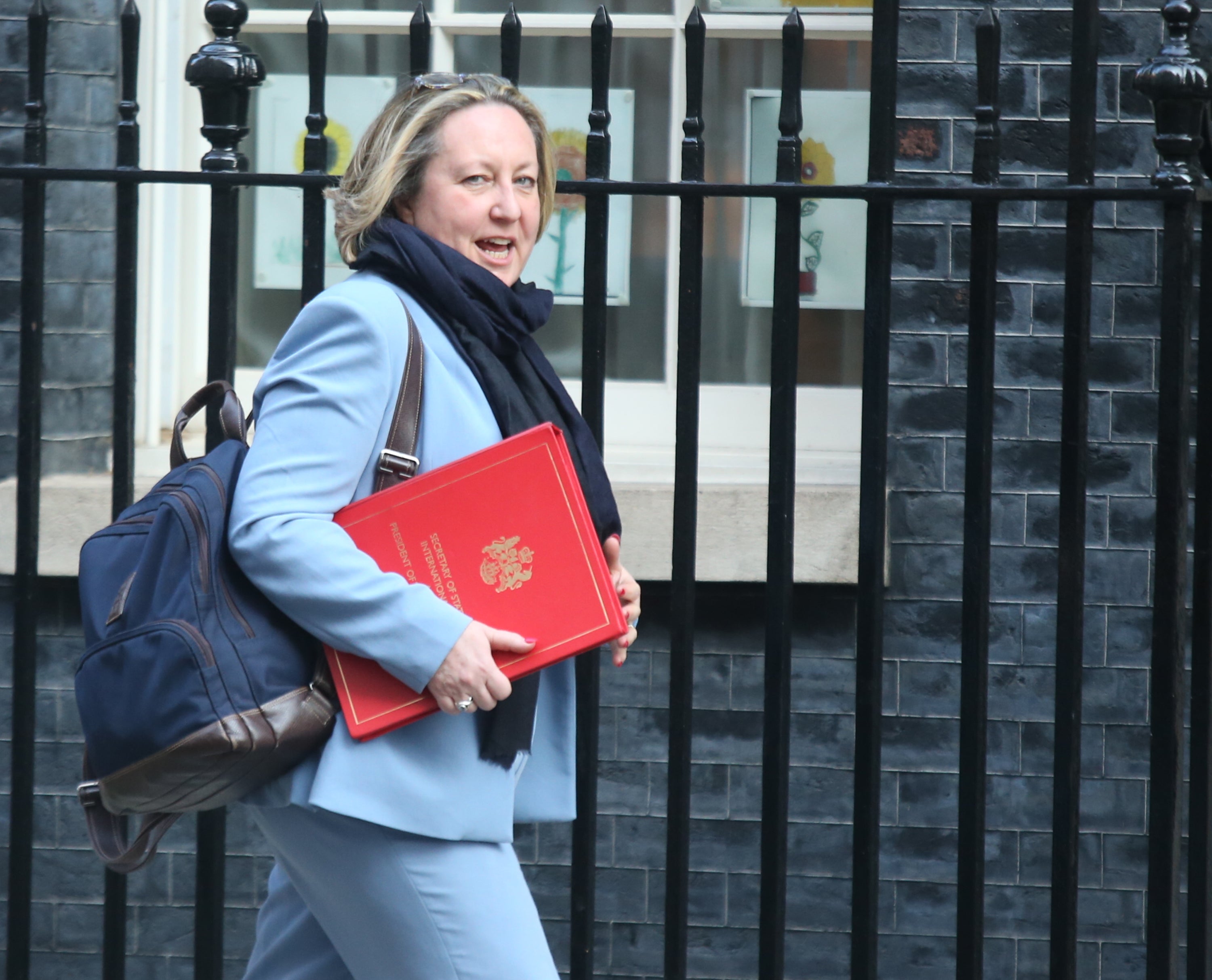UK risks ‘facilitating human rights abuses’ with Gulf trade deal, MPs warn
Cross-party group of MPs sounds alarm after government ditches human rights as negotiating objective

Your support helps us to tell the story
From reproductive rights to climate change to Big Tech, The Independent is on the ground when the story is developing. Whether it's investigating the financials of Elon Musk's pro-Trump PAC or producing our latest documentary, 'The A Word', which shines a light on the American women fighting for reproductive rights, we know how important it is to parse out the facts from the messaging.
At such a critical moment in US history, we need reporters on the ground. Your donation allows us to keep sending journalists to speak to both sides of the story.
The Independent is trusted by Americans across the entire political spectrum. And unlike many other quality news outlets, we choose not to lock Americans out of our reporting and analysis with paywalls. We believe quality journalism should be available to everyone, paid for by those who can afford it.
Your support makes all the difference.A cross-party group of MPs has urged the government to think again after it U-turned on human rights safeguards in a new trade deal with the Gulf states.
The Independent revealed over the weekend that the government had ditched plans to make upholding human rights and the rule of law key objectives in its negotiations with the six-member bloc.
MPs from the Conservative, Labour, Liberal Democrat, Green, and Scottish National parties said the UK government risked "facilitating" human rights abuses by pushing ahead without the protections.
The safeguards were consulted on in October but dropped from a final list of objectives published last week.
In a letter to Anne-Marie Trevelyan the MPs said the new policy "presents a clear U-turn in UK policy" and that the launch of talk was "in direct contradiction to the former Foreign Secretary’s assertion that the UK 'shouldn’t be engaged in free-trade negotiations with countries abusing human rights'".
The MPs noted that the government had "failed to even mention human rights in its public statements regarding" the planned free trade agreement and that meetings with top officials from the countries "were held during parliamentary recess, thus limiting their potential to be scrutinised by this House".
They added: "The lack of any demonstrable considerations of human rights or democratisation in the build up to this agreement is extremely concerning and we urge you, in the strongest of terms, to reconsider your approach and ensure that human rights are placed as an important part of any trade agreement with the GCC.
"To avoid the risk of facilitating abuse, any agreement must feature clear human rights commitments and must be strictly contingent upon the Gulf states’ compliance with international human rights law and humanitarian law.
"In conclusion, we request a meeting with you in order to ascertain where negotiations currently stand and discuss what plans there are to incorporate questions of human rights into the upcoming agreement."
The UK government’s trade policy with Europe has inflicted serious economic damage on British imports and exports – and ministers want to boost trade with regions such as the Gulf to close the gap.
International trade secretary Anne-Marie Trevelyan last week met representatives of the Gulf Cooperation Council (GCC) in Riyadh to begin negotiations with the six-nation bloc, which includes Saudi Arabia, Bahrain, Kuwait, Oman, Qatar, and the UAE.
MPs to sign the letter include Peter Bottomley, Conservative MP and Father of the House, Caroline Lucas the former Green Party leader, Drew Hendry, SNP trade spokesperson, and Brendan O’Hara, the chair of the APPG on Human Rights in the Gulf.
It was also signed by Sarah Olney, Liberal Democrat trade spokesperson, and campaigning Labour MPs Nadia Whittome, Diane Abbott, Richard Burgon, and Bell Ribeiro-Addy. In the Lords the letter was signed by Lord Scriven, the APPG's vice chair.
Sayed Ahmed Alwadaei, Director of Advocacy at the Bahrain Institute for Rights and Democracy (BIRD), told The Independent: “That the UK government is about to strike a free trade deal with some of the most repressive dictatorial regimes on earth represents a U-turn from its commitment not to enter into trade agreements with countries abusing human rights.
"This trade deal marks the government’s broken promise and sets an extremely low bar for the UK’s respect of human rights. Failure to centre human rights in this agreement will have a catastrophic impact and will be seen by Gulf regimes as a green light for continued repression.”
Liberal Democrat trade spokesperson Sarah Only said: “After failing to guarantee British standards on animal welfare and environmental protection in the FTA with Australia, the Government are now sinking even lower by negotiating a trade deal with Gulf Cooperation Council countries that appears to make no reference to their abysmal record on human rights.
"This Conservative Government has shown time and time again that they are not committed to upholding human rights, after announcing plans to scrap the Human Rights Act earlier last week." She said there should be "minimum standards for benchmarking future trade agreements; to include human rights, conflict and oppression, environmental, labour and safety standards, where they can be negotiated, based on a UK Trade and Human Rights Policy".
A Department for International Trade spokesperson said: “The UK is a leading advocate for human rights around the world and the FCDO [Foreign, Commonwealth and Development Office] lead on our efforts to promote universal human rights.
“It is our experience that secure and growing trade relationships can increase UK influence and help us to open conversations with partners on a range of issues, including human rights.”
Join our commenting forum
Join thought-provoking conversations, follow other Independent readers and see their replies
0Comments